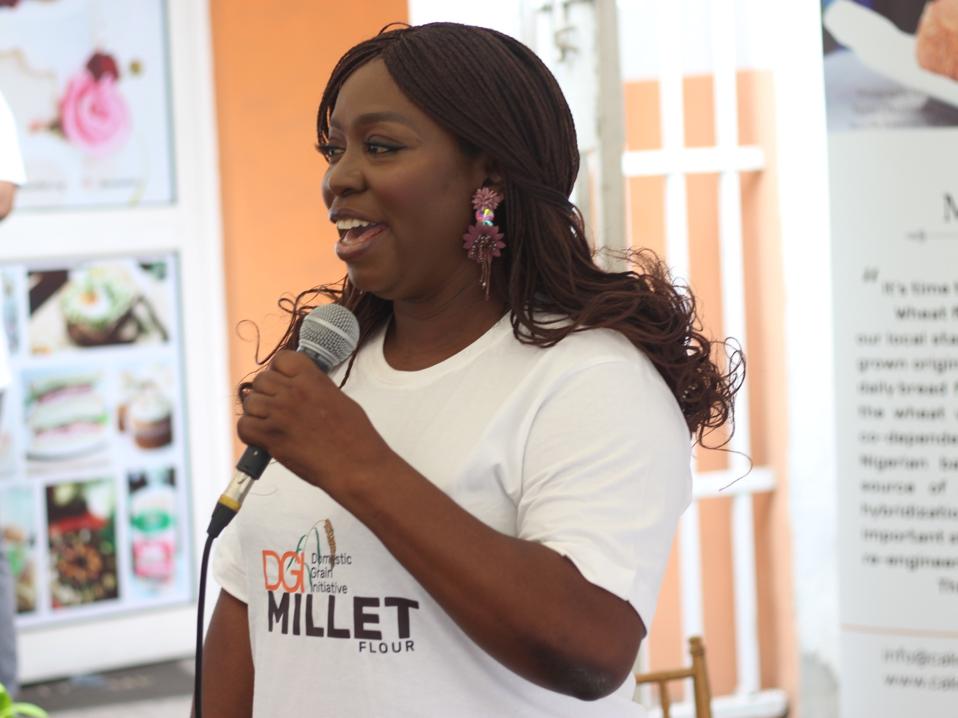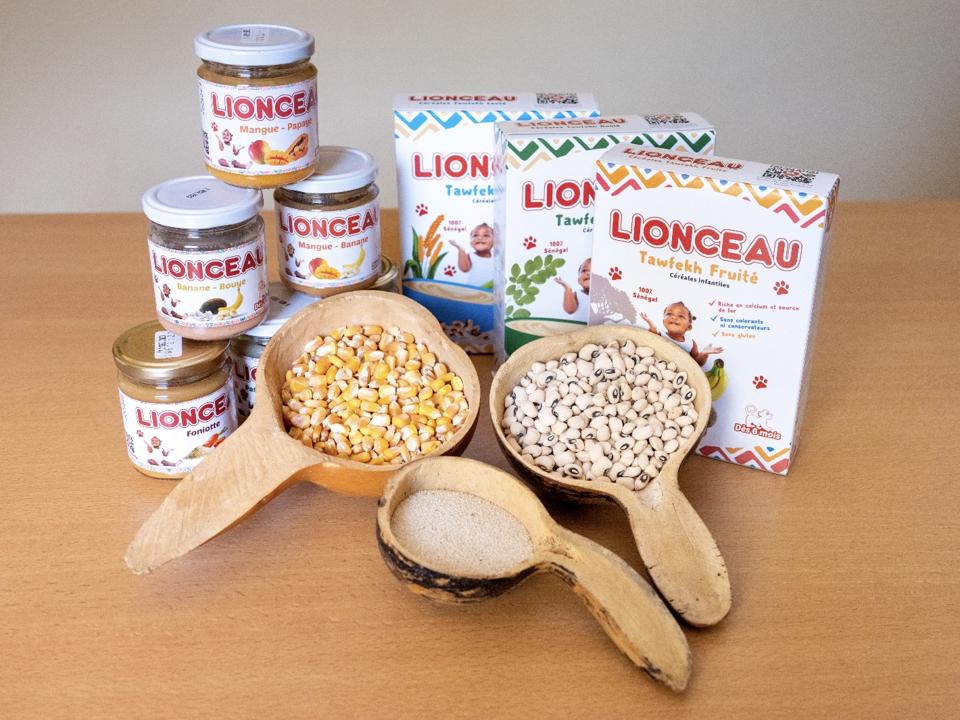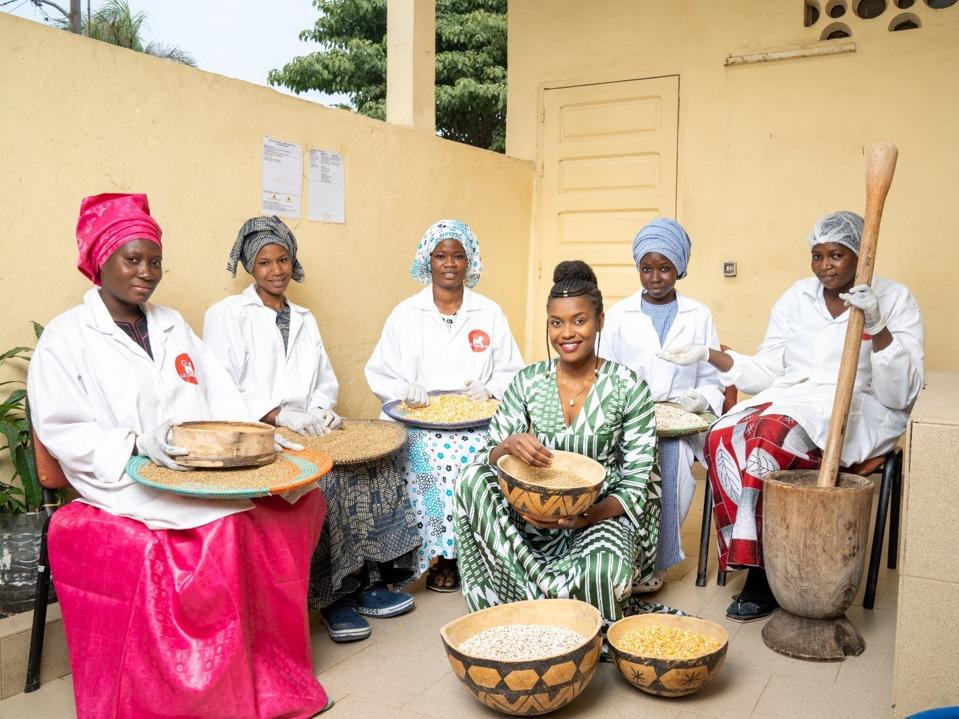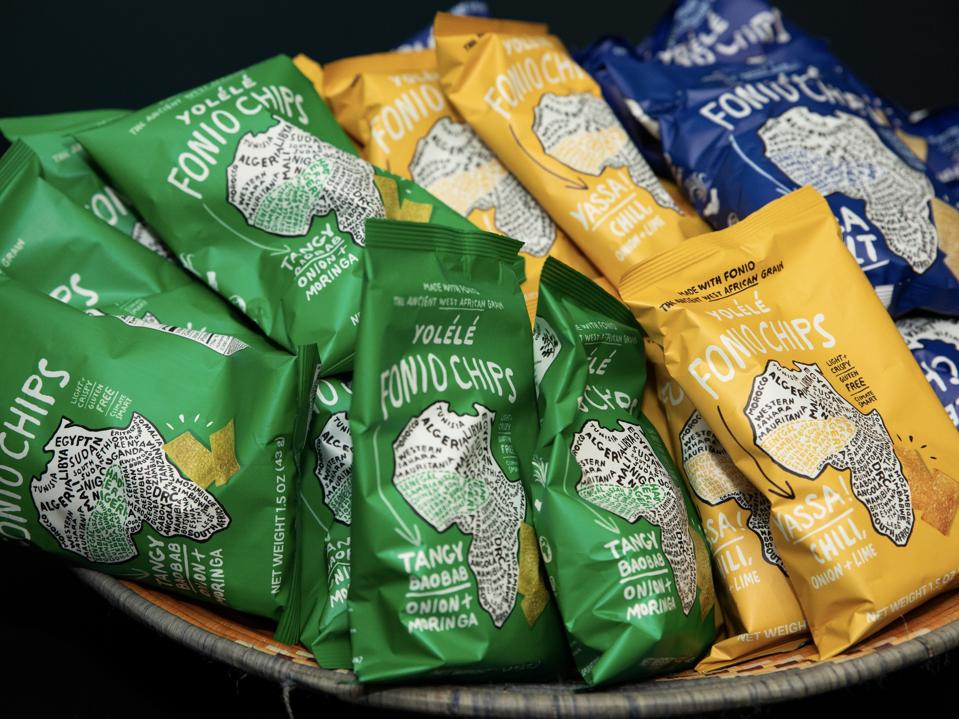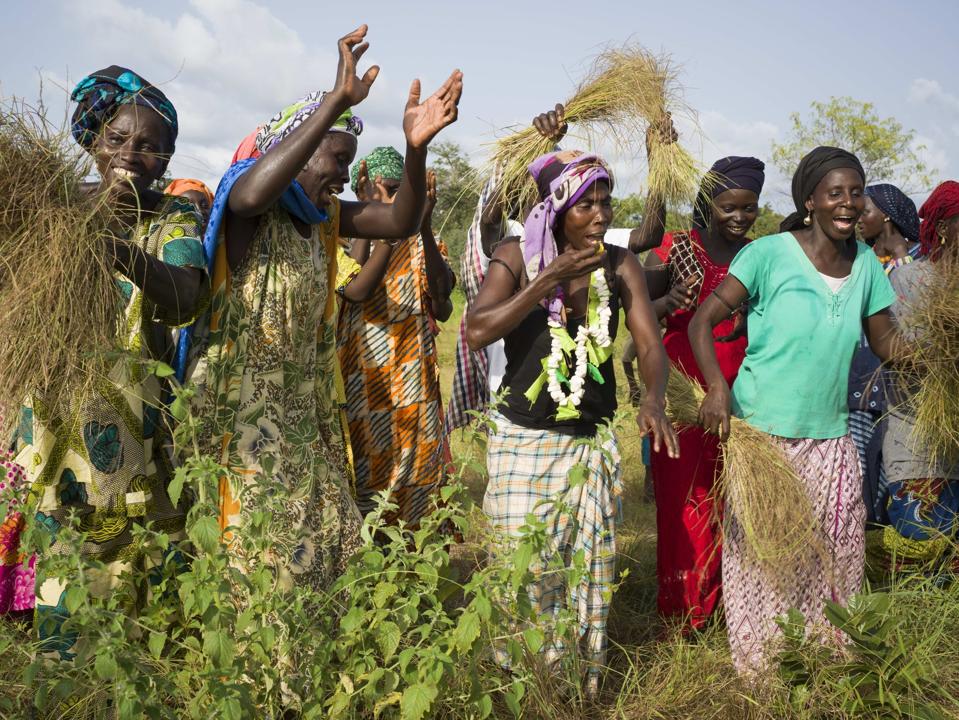In Lagos, Nigeria, where the hum of the city mingles with the aroma of freshly baked bread, Chef Juliet Aigbe, known affectionally as “Chef Juls,” slides a grain-free wedding cake into a large commercial oven.
Her award-winning bakery, Cakeflair, is more than just a place where wholesome baked goods are crafted; it’s the site of a movement that draws from the soil of her childhood and envisions a transformative future for Africa— rooted in the flavors of home.
Aigbe is part of a rising movement of African food entrepreneurs leading the revival of the continent’s more than 2000 indigenous food crops, often referred to as “orphan,” “neglected” or “underutilized” crops— varieties that have been largely overlooked by global agriculture but hold immense potential for local communities and sustainable food systems.
At a time when climate change, poverty, and instability are driving food insecurity— leaving one in five Africans undernourished and 58% facing moderate to severe hunger— investing in indigenous crops offers a powerful solution. By empowering farmers, fostering climate resilience, and offering both nutritional value and economic potential, these crops play a crucial role in combating food insecurity across the continent.
This movement of small food businesses extends beyond financial gain, intertwining food with purpose, business with community, and tradition with innovation— all in pursuit of a common goal: to achieve Sustainable Development Goal 2— Zero Hunger.
“I call it ‘Chef Juls on a Mission,” Aigbe smiles as she conveys the purpose behind her profitable business.
Her eyes light up with the same passion that fueled her journey from a farm girl in Kwara State to a trailblazing entrepreneur. She recounts her farm to fork upbringing, her love for millet and her commitment to Nigerian indigenous crops.
As a baker, Aigbe’s passion inspired her to launch Domestic Grains Mills, a social enterprise focused on developing strategies for backward integration to optimize the millet grain value chain, and Chef Juls Mixes, Nigeria’s first indigenous cake and pancake box mixes.
But her aspirations extend far beyond the West African nation she calls home.
“We have a lot of grains in Africa, options that we can use to empower ourselves and be a contributing continent to the world food chain,” she asserts with pride.
African orphan crops— ranging from millet and sorghum to fonio and cowpeas (black-eyed peas)— are finally stepping into the spotlight after years of being overshadowed by imported staples.
Juliet “Chef Juls” Aigbe is an advocate for millet in Nigeria and across the African continent
Juliet Aigbe
In countries like Kenya, for example, approximately 30% of all vegetables sold are African Indigenous Vegetables (AIVs) grown around the capital, fueled by the rising demand from urban consumers.
The future looks promising: The African Development Bank projects that Africa’s food and agriculture market could soar from $280 billion annually in 2023 to $1 trillion by 2030.
And what’s more? It just tastes better.
“The way you taste food when you grow it from scratch is different from when you buy food at a restaurant or fast-food joint,” Aigbe explains.
The rediscovery of indigenous grains sparked something deeper in Chef Juls— a mission to champion these crops across the nation. Her advocacy has made waves, earning her recognition as one of Nigeria’s 100 Female Entrepreneurs making a difference in their sector.
Similar sentiments echo across the continent, where entrepreneurs like Siny Samba in Senegal are also finding purpose and profits in the soil of their country.
Samba’s journey began in her grandmother, Baadji’s kitchen, where she would cook local foods for street children in the area.
“My grandmother would valorize our local crops and work with local producers to create very tasty and spicy meals from these products,” she remembers. “I grew up in this social environment of supporting each other, helping one another, and creating meals from our local flour. This experience ignited my passion for food.”
Le Lionceau produces healthy baby food, adapted to local tastes, using Senegalese cereals, … [+]
Siny Samba
When Samba returned to Senegal after finishing her tertiary education and gaining invaluable experience at a baby food company in France, she was struck by the disconnect between the abundance of local crops, the struggle of smallholder farmers desperately trying to find markets for their products, and shelves filled with imported baby food— while malnutrition was still prevalent.
Driven by a deep passion to nourish her community, make a lasting impact on health, and strengthen local food systems, she founded Le Lionceau (French for ‘Baby Lion’), a baby food company dedicated to sourcing 100% of its ingredients locally.
“We use cereals like millet, fonio, sorghum, and cowpeas, as well as legumes and sweet potatoes,” she explains proudly. “We also use non-timber forest products like the baobab tree and the moringa tree… In our organization, Zero Hunger is the first SDG we prioritize. We are combating child malnutrition, collaborating with smallholder farmers, and making food more available and accessible.”
The economic and social impact of businesses like Le Lionceau is profound. By focusing on indigenous crops, African food entrepreneurs are creating new markets, generating employment, and empowering women, who are often at the forefront of agriculture.
In Senegal, where rural women make up nearly 70% of the workforce and are responsible for producing 80% of the nation’s food supply, Samba is partnering with women’s cooperatives to safeguard traditional knowledge and create new income opportunities that strengthen and uplift their communities.
Siny Samba with women on her processing team
Siny Samba
The movement to uplift Africa’s traditional crops also extends to Mali, where entrepreneur, Simballa Sylla, Founder of Sustainable African Foods, works to bring indigenous grains like fonio into the global spotlight.
In 2017, after years of working with smallholder farmers and growing the market for shea butter, Sylla met Chef Pierre Thiam and Philip Teverow, who introduced him to the vast potential of fonio— the flagship product of their food company, Yolélé.
The West African indigenous grain captured Sylla’s heart.
“Fonio is an indigenous crop that has been around for thousands of years,” he explains. “It’s drought-resistant and doesn’t require irrigation. It’s grown in areas with poor soil… Fonio is highly nutritious, with three times more iron, fiber, and protein than rice.”
Fonio chips from Yolélé
Simballa Sylla
Sylla recognized that promoting fonio, not only for the export market but also for local consumption in West Africa, could be beneficial. Following this realization, he began working on making production of the crop more environmentally and commercially sustainable on a global scale— a vision that extends beyond profit alone.
“Our group of companies— Yolélé Sustainable African Food and Yolélé West Africa— are focused on promoting these indigenous crops. Our goal is to combat food insecurity in Africa,” he explains. “While we are a commercial entity with the goal of making a profit, we believe that we can combine this mission with helping African countries. By introducing fonio to the West, we raise awareness and generate revenue that can be reinvested in West Africa. But it’s crucial that the local population also has easy access to these nutritious foods.”
In 2022, as part of its mission to expand processing across West Africa and convert locally grown crops into food products for regional and international markets, the company launched a fonio processing plant in Mali. This groundbreaking facility is set to create nearly 14,000 jobs, generate $4.5 million in revenue for smallholder farmers, strengthen Yolélé Foods’ supply chain, and attract global interest in sourcing fonio.
(L-R) Simballa Sylla, Pierre Thiam and Philip Teverow
Simballa Sylla
The work of Juliet “Chef Juls” Aigbe, Siny Samba, and Simballa Sylla is a testament to the power of food to transform lives. Their businesses, built on the foundation of indigenous African crops, are not just contributing to their countries’ economies; they are also playing a crucial role in achieving Zero Hunger by 2030.
By aligning their efforts with the Zero Hunger Pledge, they are part of a broader movement that recognizes the interconnectedness of food security, poverty alleviation, women’s empowerment, and climate resilience.
“What I appreciate about our goal of food security is that it requires a collective effort,” Sylla explains. “This is what attracted me to the Zero Hunger Pledge. It’s not about telling people what they must do; it’s about asking them what they can do and encouraging them to take action. This approach is appealing because it raises awareness and shows that we all have a role to play, whether we’re small companies, big companies, private, or public institutions.”
Siny Samba agrees.
“I believe that businesses, especially those emerging, have a pivotal role in food systems. We are at the center, connecting smallholder farmers with consumers. When creating a business, it’s important to have a sense of altruism. We’re not just doing business for the sake of business anymore; we need to ask ourselves, ‘What am I doing? Who am I going to impact?’”
Chef Juls is challenging more food companies to join the movement.
“I see a lot of food corporations, large corporations, who are into food, but they’re mostly profit-driven, which is not a bad thing. It’s just a matter of how far you’re willing to go to make profits… I’m looking for a way to make this work, where you can make a profit and still keep it wholesome. It’s a delicate balance… There’s a lot to do. I feel like we need to just wake up and stop posturing and start acting.”
The growing food business boom in Africa, driven by a renewed focus on indigenous crops, is a revolution in the making. This is a revolution that not only promises to feed the continent, but also to empower its people, protect its environment, and secure its future.
As Chef Juls would say— it just tastes better.
Women fonio farmers
Simballa Sylla

